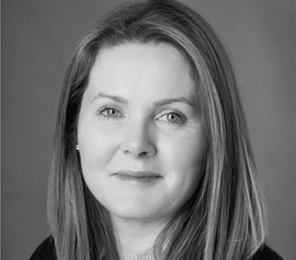In search of . . . how immune defenses are initiated: Katherine Fitzgerald, PhD
On Tuesdays, the Daily Voice features a first-person narrative from a researcher explaining the science behind a recent grant, and the inspiration or impetus behind becoming a scientist at UMass Medical School. If you know of a researcher you’d like to see profiled, send an email to UMassChanCommunications@umassmed.edu.
|
Katherine Fitzgerald, PhD, professor of medicine, talks about her research, her path to a career in science and her current National Institute of Allergy and Infectious Diseases grantDNA sensors and associated signaling pathways in the innate immune response (one year, $365,225; recommended for four more years, $1.4 million). |
 |
Research in my lab is focused on the innate immune system, the body’s first line of defense against microbial infection. Our work has centered on understanding how immune cells recognize and respond to infection by studying families of surveillance receptors such as the Toll-like receptors or NOD-like receptors that detect foreign microbial products. These surveillance receptors become activated by microbial products triggering protective immune defenses aimed at controlling pathogen growth. Using a combination of biochemical, cell biological and genetic approaches we are trying to understand how immune defenses are initiated.
The innate immune system is important not only in controlling the growth and spread of infectious agents, but also for shaping the adaptive immune response, which is ultimately required to eliminate infectious agents from the body. By understanding how microbial products are sensed, this information can be manipulated for effective vaccine design to make better and more targeted vaccines. Furthermore, it has now become clear that dysregulation of innate immunity is linked to inflammatory diseases such as heart disease and arthritis; therefore, understanding the molecular mechanisms of the innate immune system can lead to the development of therapeutics/drugs to intervene in these diseases.
I was inspired by a creative biology teacher in high school, and, after having spent a summer working in a hospital research lab, decided that a career in biomedical sciences was for me.
The Boston area seemed like the center of the scientific world and I wanted to be immersed in this environment. I came to Boston looking for a postdoctoral position and decided to stay.
The innate immune system is a very fast moving, exciting field, honored this year with a Nobel Prize. The concept that the innate immune system represents a double-edged sword is a very interesting idea. On the one hand, by studying immune defenses we learn how the body protects itself from infection, but at the same time, we have learned that these responses need to be balanced carefully; if not they lead to devastating disease. The idea of understanding what regulates this balance means we can artificially tip the balance to enhance protective responses or limit damaging ones. Studying host-pathogen interactions allows us to uncover cool mechanisms used by pathogenis to thwart defenses.